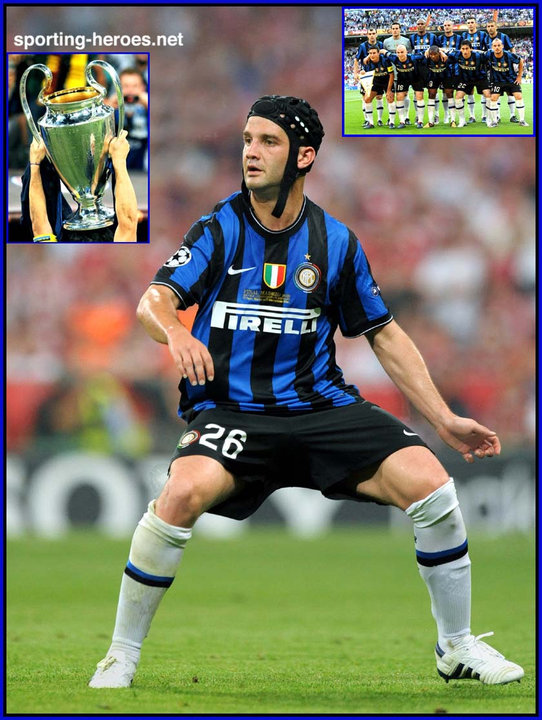
Milan, a city synonymous with both footballing glory and architectural grandeur, recently found itself at a crossroads. As the city council deliberated the future of the iconic San Siro stadium – a decision that signals the eventual demolition of a cathedral of sport – another pivotal transformation was quietly unfolding within the walls of Inter Milan. This transition, spearheaded by new manager Cristian Chivu, isn`t merely about new tactics; it`s about redefining Inter`s very approach to European conquest, moving beyond past disappointments with a meticulous, almost surgical, precision.
The Post-Inzaghi Blueprint: A New Hand on the Tiller
The echoes of last season`s UEFA Champions League final, a stark 5-0 defeat to PSG, still resonated. A humbling experience, it underscored the need for a fresh perspective. Enter Cristian Chivu, a name well-known to Nerazzurri faithful from his playing days, including a Champions League triumph in 2010. His appointment to replace the departing Simone Inzaghi, who ventured to Al-Hilal, was met with a degree of healthy skepticism. Chivu, after all, possessed a relatively modest coaching CV, his experience predominantly from Parma. Yet, from the outset, a palpable shift in atmosphere has been detected.
“There was a different feeling in Milan… Chivu is immediately proving to be a coach capable of making the right decisions.”
This “different feeling” is less about flamboyant declarations and more about calculated actions. Chivu inherited a squad still reeling from a significant European setback but also one with immense potential. His initial decisions suggest a coach who isn`t afraid to deviate from established norms, opting for practicality over predictability.
The Art of Dynamic Rotation: Beyond `Two Teams`
Last season, Inzaghi`s approach to juggling domestic and European fixtures often involved a rather distinct bifurcation of his squad. One team for Serie A, another for the Champions League – a strategy that, while attempting to manage fatigue, sometimes sacrificed cohesion. Players like Mehdi Taremi and Piotr Zielinski, for instance, found themselves prominent in Europe but peripheral in the league, creating an almost `Champions League specialist` caste within the team.
Chivu, it appears, has learned from this. His rotation philosophy, showcased against teams like Slavia Prague, is less about creating fixed European and domestic units and more about a fluid, weekly assessment of his squad`s condition and the specific demands of the upcoming opponent. Against Slavia Prague, he made seven changes from the preceding Serie A match, yet the team`s quality and compactness remained uncompromised, culminating in a confident 3-0 victory.
His logic is refreshingly straightforward:
- Managing Fatigue: With only 72 hours between matches, judicious resting of key players is paramount.
- Opportunity for Depth: Giving minutes to those who have played less maintains squad morale and readiness.
- International Breaks: Anticipating the demands of national team duties by allowing players to recuperate.
This isn`t mere rotation; it`s dynamic squad management. Yann Sommer, Federico Dimarco, Marcus Thuram, and Denzel Dumfries have featured prominently across competitions, indicating that Chivu prioritizes form and fitness over rigid player categorization. Lautaro Martinez`s minor injury in an away game against Ajax further underscores the need for such adaptable planning.
The Road Ahead: From Proving Ground to Contenders` Table
While Chivu`s nuanced approach has yielded early success against Ajax and Slavia Prague – matches crucial for accumulating vital group stage points – the true litmus test lies ahead. Inter`s journey to European supremacy will soon involve clashes with formidable adversaries such as Arsenal, Atletico Madrid, and Liverpool. These are the encounters where tactical depth and squad resilience are truly measured, where one cannot simply `rest a few` without consequence.
Before facing these titans, Inter must secure maximum points against Union Saint-Gilloise and Kairat. These seemingly straightforward fixtures are, in fact, strategic battles, providing Chivu further opportunities to refine his rotation machine and build momentum. If he can continue to rotate players effectively without diluting performance, maintaining both domestic prowess and European ambition, then Inter Milan will cease to be merely a participant and truly warrant a place at the Champions League contenders` table. It`s a demanding equilibrium, but for a club with European aspirations, it`s the only path forward. The chess pieces are moving, and Chivu seems to know precisely where to place them.











